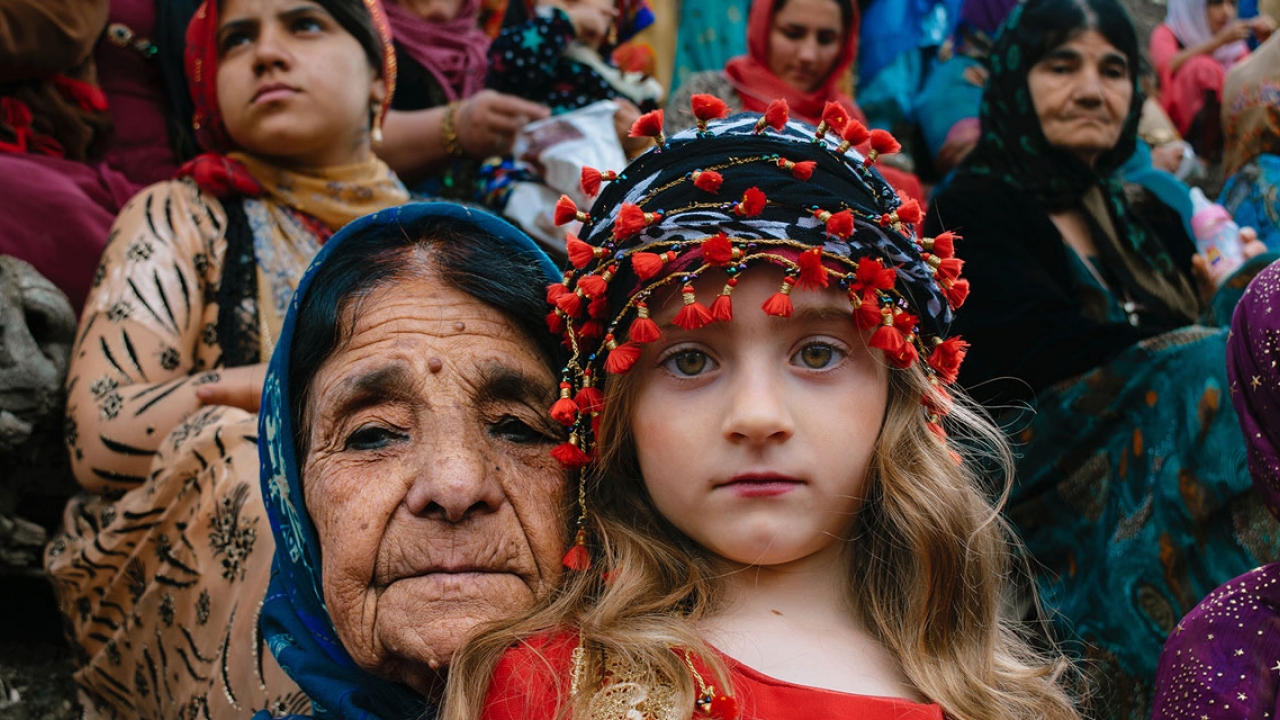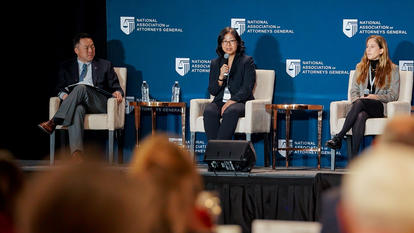Freedom Project Fellow Discusses Past and Current Struggles of the Kurds

President Trump’s recent decision to withdraw most U.S. troops from Syria and Turkey’s subsequent incursion into the northern part of the country have thrown the Kurds into the international spotlight. Here, Nazan Bedirhanoglu, a Freedom Project postdoctoral fellow in the political science department at Wellesley, answers questions about Kurdish politics and culture, and their diaspora in the United States and Europe. Bedirhanoglu is also a fellow in the New University in Exile Consortium, a network of fifteen universities and colleges that host endangered and exiled scholars, of which Wellesley is a founding member.
Q: Who are the Kurds, and why don’t they have their own state?
Nazan Bedirhanoglu: Kurds are a nation with a population estimated at over 35 million whose historical lands are divided among four countries: Turkey, Syria, Iraq, and Iran. Turkey has the largest Kurdish population, at over 15 million. There is a sizeable Kurdish diaspora in Europe and a smaller but politically and culturally very active diaspora group in the United States.
There are three major reasons why Kurds do not have a nation state. First, Kurds missed the heyday of ethnic nationalism of the 19th century in Europe and the Ottoman Empire. The great majority of Kurds lived in the Ottoman Empire, and many of the Sunni Kurds remained loyal to the Ottoman sultan, who had the Caliph title until the last years of the empire before its dissolution. Thus, Kurdish nationalism was too late and too little in the late 19th century. Second, the international conditions in the early 20th century were not favorable. The British and French empires planned the partitioning of the Ottoman Empire in 1916 during the first World War with the secret Sykes-Picot Agreement, but Kurds were not granted a nation state in that agreement. The 1923 Treaty of Lausanne does not mention Kurds’ right to self-determination or entitlement to any cultural rights as a minority group. Third, Kurds found themselves alone against many newly established nation-states in the 20th century, which were determined to crush any nationalist Kurdish movement or any claims to cultural rights or political autonomy.
Q: In the western media, the Kurds are often presented as relatively monolithic. What kinds of diversity exist within the Kurdish population across Iraq, Iran, Syria, and Turkey?
Bedirhanoglu: Kurds speak four different dialects: Kurmanji, Sorani, Zazaki, and Gorani. Different sects of Islam, such as Shafism and Alevism, as well as different religions, such as Ezidism, find believers among Kurds. As in other cases, we should not assume a homogenous group. However, the division of Kurdish homelands among different nation states does not directly correspond to cultural differences. Ironically, the fact that Kurds are not represented under one nation state is a unifying element, because Kurds developed some level of solidarity against assimilationist policies in all four nation states. We now see a unified Kurdish voice against Turkey’s military operations in the northeastern part of Syria where Kurds live.
Q: How do Turkey, Iran, Iraq, and Syria view their Kurdish populations?
Bedirhanoglu: The governments of these countries approach their Kurdish citizens with negative policies ranging from discrimination to open hostility and violence. Except for the autonomous Kurdish region in Iraq, Kurds are not granted any meaningful collective rights in these countries to pass their language and culture to next generations. Despite Kurds’ large population, the Kurdish language is facing extinction because Kurds obtain very limited formal education in their native tongue. Furthermore, notwithstanding their rivalries, these four countries can cooperate very effectively when one of the countries pursues military operations against Kurdish militias. As Kurds are forced to live in a perpetual state of war and violence, their capacity to culturally and economically prosper has been severely undermined for decades, if not centuries.
Q: The Kurdish diaspora is one of the largest groups in Europe. How do you compare the Kurdish diaspora in the United States to its counterpart in Europe?
Bedirhanoglu: The Kurdish diaspora in the United States, albeit smaller in number, proved to be very effective in the political circles in Washington in representing Kurdish perspectives. Given the importance of the United States in the Middle East, the input Kurds provided here in the States had greater impact compared to over 1 million Kurds in Europe, who organize protests en masse. Kurds from all parts of Kurdish lands are much more connected and act together in the United States, whereas in Europe old political divisions carried over from the homelands are prolonged in contemporary cultural and political organizations.
Photo: A grandmother and her grandchild watch a “Nowruz” ceremony in 2017 in Bisaran, one of the villages in Kurdistan.



